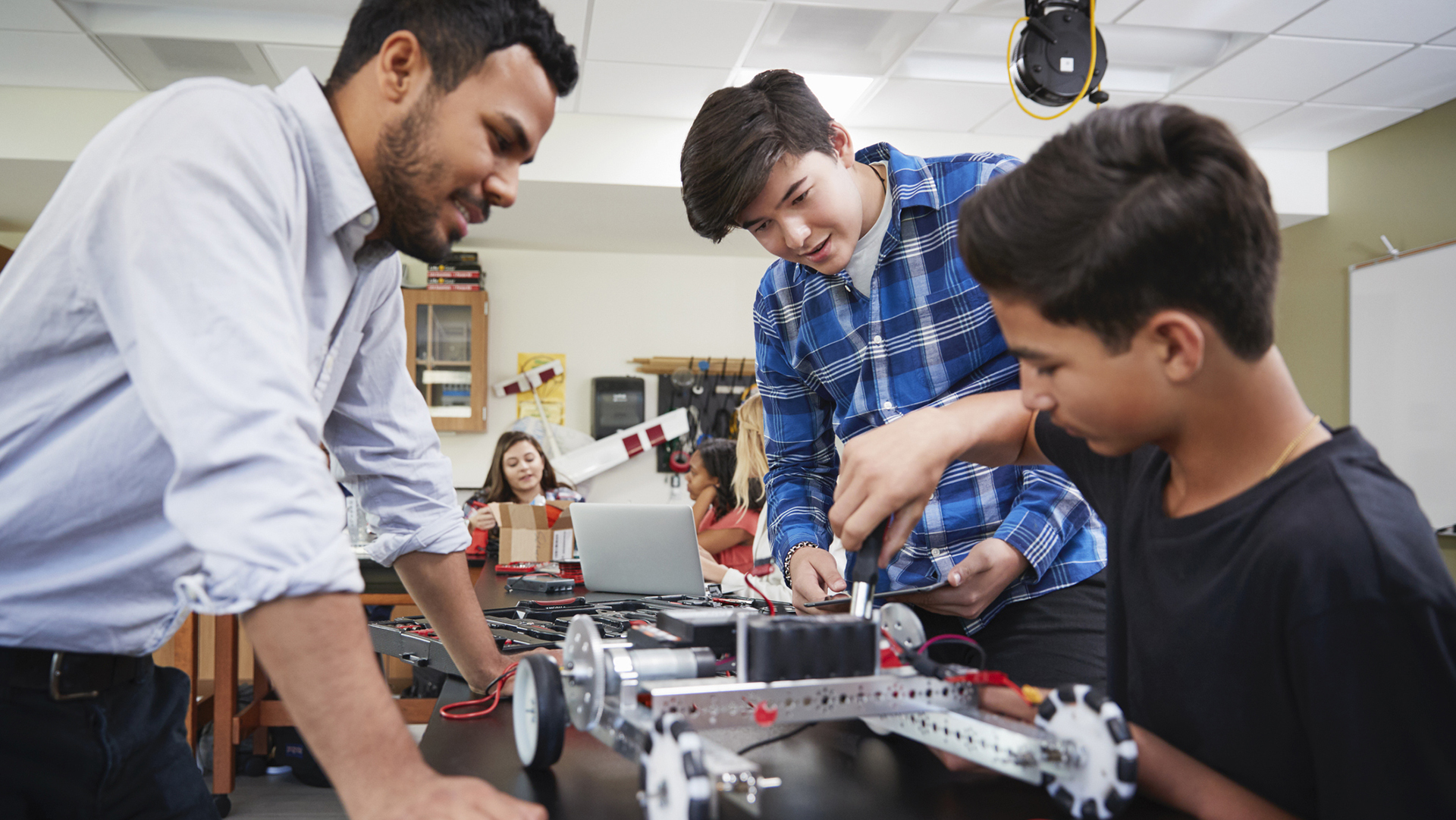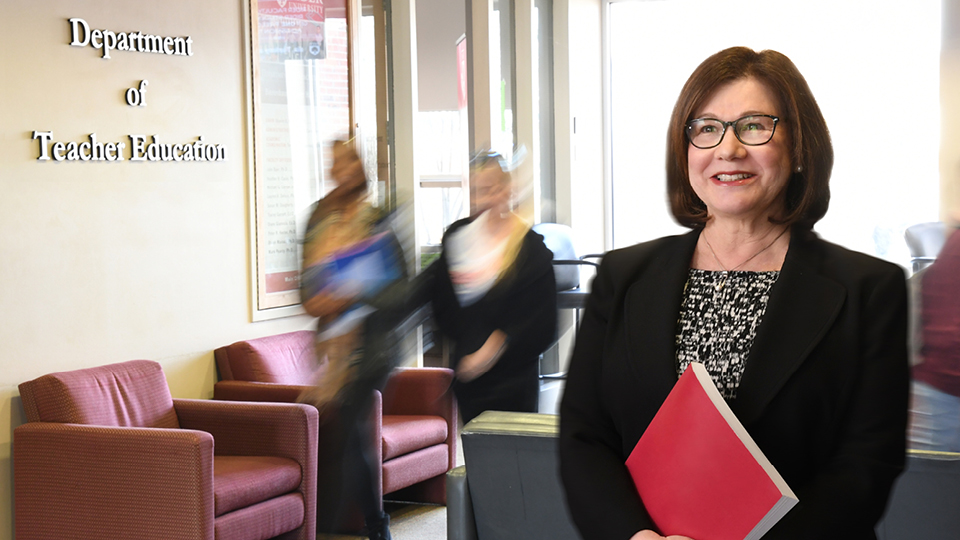Thursday, Feb 3, 2022
Since partnering with 100Kin10, Rider has produced STEM teachers through a variety of pathways and innovative programs
by Keith Fernbach
Rider University has been recognized for its role in a nationwide initiative called 100Kin10, which aimed to prepare 100,000 new science, technology, engineering and math (STEM) teachers over a 10-year period.
A decade after it began, 100Kin10 recently announced that it has surpassed its goal, and Rider was among the top 20 most engaged and active partners, according to Talia Milgrom-Elcott, the executive director and founder of 100Kin10. Other partners included more than 300 top academic institutions, nonprofits, foundations, companies and government agencies, including Google, NASA and National Geographic.
Dr. Sharon Sherman, who served as dean of Rider’s College of Education and Human Services before retiring in 2021, was one of the leaders in forging the 100Kin10 partnership and implementing numerous STEM-related initiatives across the University. She says 100Kin10’s mission is critical to addressing many of society’s biggest challenges.
“We are currently dealing with a global pandemic and the impact of climate change,” says Sherman, whose background is in chemistry and STEM education. “We need STEM professionals and a population that understands STEM concepts on a practical level.”
Since partnering with 100Kin10, Rider has produced STEM teachers through a variety of pathways and innovative programs.
Rider has developed online STEM courses for practicing teachers, many of whom went on to become state certified as STEM teachers and STEM teacher leaders. This program was made possible by $600,000 in grant funding from the Martinson Family Foundation, as well as multiple state and federal grants that covered the cost of tuition for many of the teachers. Rider was also able to fund STEM professional development for partner PK-12 schools, enabling community outreach.
A partnership with U.S. Satellite Laboratory (USSL) provides nationwide opportunities for PK-12 teachers to develop STEM expertise via live, online graduate courses. In many states, these courses count toward the middle school science or mathematics teaching endorsement.
The University also created a multidisciplinary studies major for students planning to become elementary and early childhood education teachers. The curriculum includes multiple math and science courses taken in Rider’s College of Liberal Arts and Science, including laboratory-based science courses. In addition, students take technology courses and have hundreds of hours of mediated field-based experiences, enabling these future educators to build a solid STEM foundation both in the college classroom and in the field.

We developed a reputation at our University of being the place to go when you wanted to be a STEM teacher.
The STEM Scholars Future Teacher Scholarship Program, funded by the National Science Foundation, offers scholarships, individualized advising and support, and a curriculum geared toward resolving the critical need for STEM teachers in high schools nationwide. After graduating, teachers are empowered to begin a career as a secondary STEM teacher (grades 9‐12) in a “high need” school district. Professors Danielle Jacobs-Duda and Peter Hester lead this effort.
Rider created pathways, including the Post-Baccalaureate Teacher Certification program and the Alternate Route to Teaching program, that allow professionals working in STEM-related occupations to change careers and become certified teachers. Professors Don Ambrose and Jonathan Yavelow secured funding for tuition assistance for STEM career changers. Professor Kathleen Pierce currently directs this program. Professor Andrea Drewes, a well-known STEM educator, has joined the team.
“We became a STEM-strong College of Education and Human Services,” Sherman says. “We were able to further our agenda in ways that we never would have been able to achieve without the ideas, the support, the collegiality, and the networking of 100Kin10 and the initiatives that grew within Rider. We developed a reputation at our University of being the place to go when you wanted to be a STEM teacher.”
As a STEM educator herself, helping Rider become known for its quality STEM education programs has been especially rewarding for Sherman.
“Educating highly qualified STEM teachers has always been important to me,” she says. “It’s a core belief. A dean’s job requires focus in many areas. During my decade as dean, I was able to direct CEHS just a bit more in the direction of developing a reputation for being STEM-strong. I’m delighted that this reputation continues.”
Today, Sherman remains active in promoting STEM education. She recently collaborated with a team of STEM professors whom she met online at the 2020 100Kin10 Summit on a chapter for a soon-to-be-published book, Teaching and Learning Online: Science for Elementary Grade Levels. Their chapter is titled, “Hurricanes and the Incredible Mystery of Disappearing Land.”
She is also helping to ensure Rider’s of preparing the teachers of tomorrow. She has endowed a scholarship in her name to assist future CEHS students with tuition assistance, and students with a STEM concentration will have a preference in being selected.
“The Dr. Sharon J. Sherman Endowed Scholarship is my gift to future Rider CEHS students and will always be open for additional donations to assist all CEHS students,” she says.


